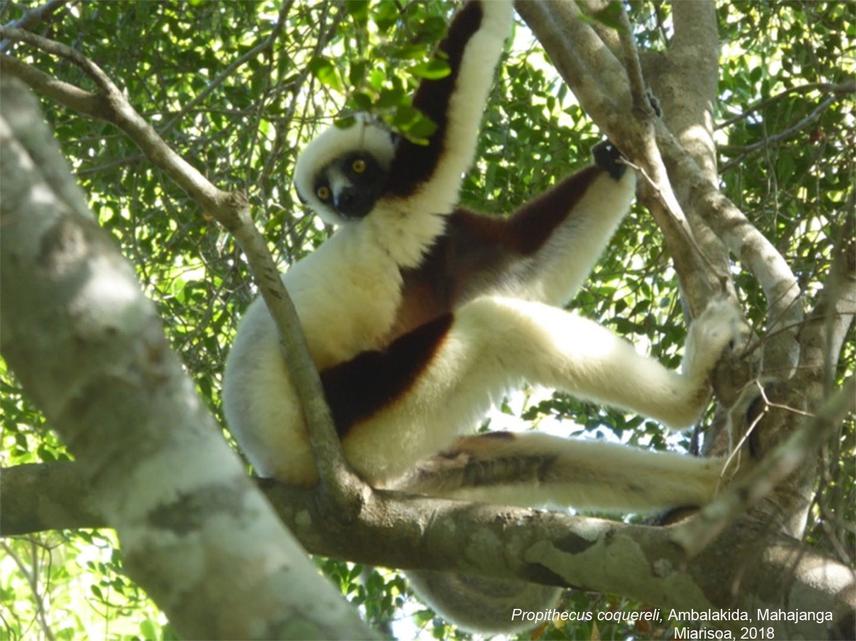Jeanne Emma Miarisoa
Other projects
12 Nov 2024
Taxonomy and Abundance Study of Mouse Lemurs: Conservation of Nocturnal Lemurs in the Ambalakida Forest, Northwestern Madagascar
In this project we aim at inventorying lemur species in the fragmented forest of Ambalakida (Mahajanga II), assessing population density and size, habitat suitability and geographic distribution but also to determine the ecological and anthropogenic factors that are influencing the habitat selection of these species. According to my previous inventory in this region, this region harbours different lemur species including Coquerelle’s sifaka (Propithecus coquereli), the brown lemur (Eulemur fulvus) and mouse lemurs (Microcebus sp.).

Propithecus coquereli.
In this project we will hold semi structured interviews with local populations, and together with some Malagasy master students from the University of Mahajanga we will assess the natural resource use that causing habitat degradation and potentially threatening these species. We will also dispense throughout the duration of this project, different courses about the ecological data collection (Species distribution, population densities, Capture-mark-recapture methods etc.) and many statistical training (Species Distribution Modelling, Distance Sampling methods, GIS tools etc.) to Master students. We will also dispense some field training on some locale guides, in order to develop local conservation and population monitoring skills. Most of the villagers in the target area are illiterate and it is necessary to provide environmental education and awareness that helps people finds ways to reduce deforestation and avoid bushfires.
This project will enhance knowledge of lemurs as well as research and conservation effort in Madagascar. By our presence, public awareness about the importance of biodiversity and natural forests will reach local people. This work can be considered as an urgently needed pilot study, after which we will assess a long-term conservation strategy of lemurs from this area in collaboration with local people